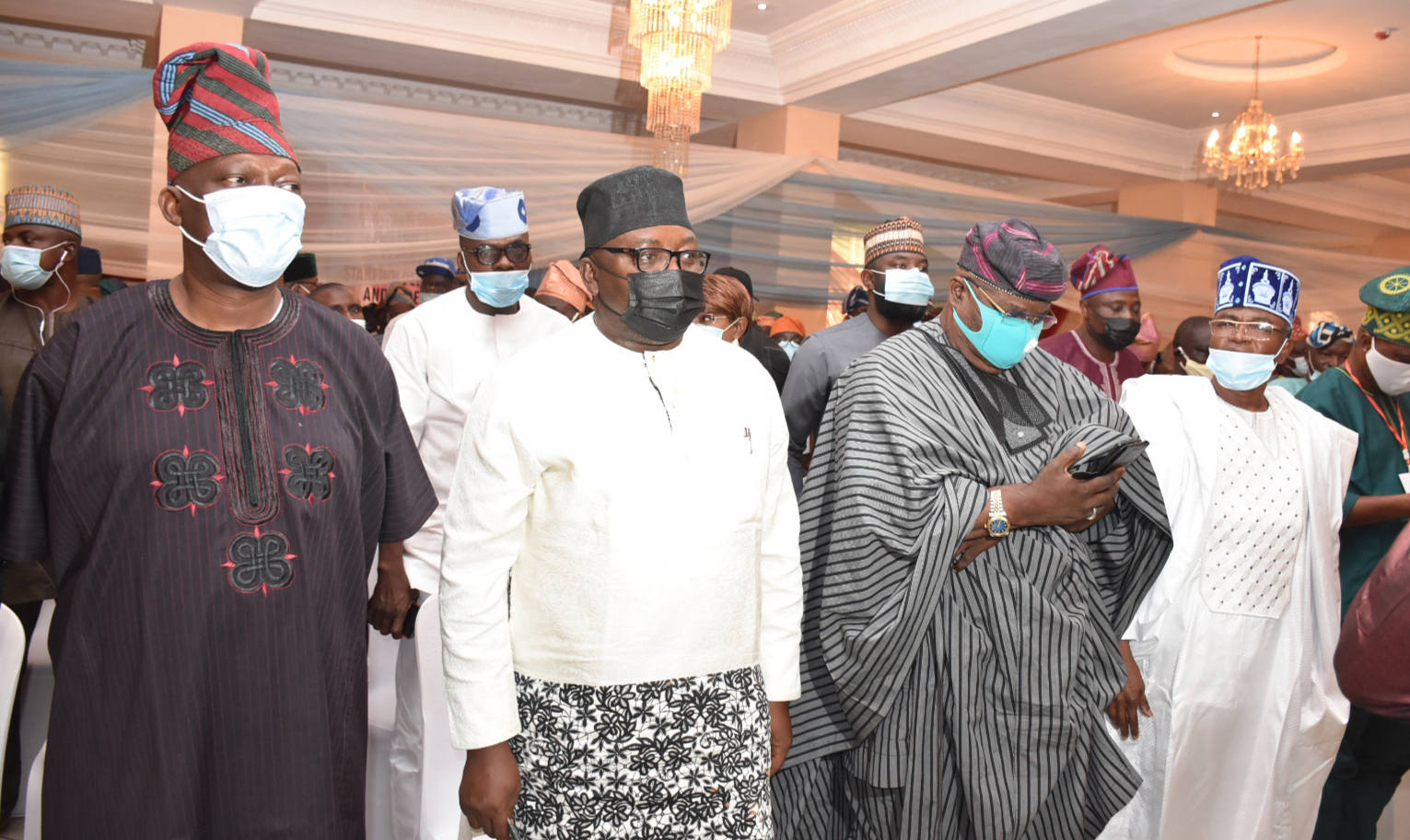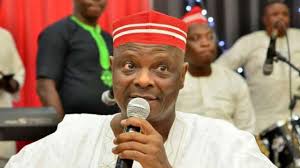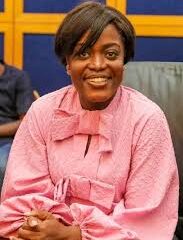Politics
Leveraging On Technology To Boost INEC Performance

Globally, the use of different forms of technology in the election process has been on the rise as more countries use Information and Communication Technology (ICT) to improve their election and democratic processes.
Political analysts believe that appropriate application of technology to electoral processes can reduce long-term costs, increase administrative efficiency, increase credibility, transparency and voters participation.
Electoral Management Body (EMB) around the world uses technologies ranging from basic office automation tools such as word processing and spreadsheets, to more sophisticated data processing tools, such as database management systems, optical scanning and geographic information systems with the aim of improving the electoral process.
For example, technology is used for voter registration to compile voter lists/register, to draw electoral boundaries, to manage and train staff, to print ballots, to conduct voter education campaigns, to record cast votes, to count and consolidate vote results and to publish election results.
In many countries technology is present in activities related to the electoral process, in some cases, it is essential to the conduct of elections, while some have gone a step ahead with its application to e-voting, which is the use of electronic technology in casting or counting votes.
Though Nigeria has yet to adopt e-voting, the Independent National Electoral Commission (INEC), has continued to demonstrate its commitment to application of technology in line with existing legal frameworks, to improve on the country’s electoral system.
In recent times, the commission introduced some technology innovations to ensure transparency in the electoral process, including the Permanent Voter cards (PVC), Smart Card Readers (SCR) and regular update of voters register.
Others include the introduction of a dedicated public election result viewing portal, known as “The INEC Result Viewing (IReV) portal’’.
The portal which enables Nigerians to view polling unit results in real time on election day, can be accessed by login in to https://inecelectionresults.com.
The portal was introduced alongside Z-pad, a tablet with dual functions of uploading of scanned copies of election results at polling Units (PUs) to the portal, as well as a secondary authentication mechanism to support the smartcard readers on voters’ verification on election day.
The technology was first test-run at the August 8, 2020 Nasarawa Central State Constituency by-election in Nasarawa State, subsequently deployed for Edo and Ondo governorship elections held on September 19, 2020 and October 10, 2020 respectively as well as for 15 by-elections held in seven states.
INEC National Commissioner and Chairman, Information and Voter Education Committee, Mr Festus Okoye, announcing the introduction of the portal, said that the commission was aware that result management had remained a major source of mistrust in Nigeria’s electoral process.
“It is a fundamental principle of democracy that in elections, votes are not only correctly counted, but that they also count,’’ Okoye said.
He recalled that in consistent with INEC commitment to transparency in election management, the commission introduced the Form EC60E, which is a poster version of the primary result sheet, the Form EC8A that enables citizens take to photographs of election results.
“This replica of the polling unit result is pasted at the PU after votes are counted, recorded and announced. This poster, now widely known as the People’s Form EC8, has increased transparency in result management.
Okoye, however, stressed that the result view portal did not constitute electronic collation of results, adding that the collation of election results shall remain as provided for by law, a manual process.
Interestingly, various stakeholders including voters, political parties, civil society organisations, election observers and the international community, commend INEC’s performance in the Edo, Ondo State and the recent by-elections, describing them as credible and improved elections.
While some see the result viewing portal as a “magic wine’’ in the Nigeria electoral process, others describe it as a key innovation boosting citizens confidence in the electoral process.
According to the Nigeria Civil Society Situation Room (Situation Room), the election appeared to have been a marked improvement on recent previous governorship elections.
The Young Progressives Party (YPP) National Publicity Secretary, Mr Egbeola Martins, also described the innovations by INEC in the electoral process, especially the result viewing portal, as welcome development.
Martins admonished INEC to collaborate with the National Assembly to give legal backing to the innovation that has further enhanced the electoral process by making it more transparent.
To further strengthen election management process and enhance transparency of the system as well cope with the challenge of COVID-19 pandemic, INEC on August 6, 2020, released a policy document titled “Policy on Conducting Elections in the Context of the COVID-19 Pandemic’’.
The policy led to the creation of e-platforms for certain INEC activities, including accreditation of observer groups and deployment of their field observers.
Online submission of nomination forms for election candidates, submission of polling units’ agents list by political parties, tracking and reporting of campaigns and campaign finance by/for candidates and political parties.
Others include online accreditation of media for election coverage, and the use of online for the registration of members of the National Youth Service Corps (NYSC) as ad hoc staff for election.
The INEC Chairman, Prof. Mahmood Yakubu, making public presentation of the policy document, said that INEC recognised the critical role that ICT play in an electoral process.
He said that electoral process was being vastly reshaped by the COVID-19 pandemic, as well as the growing demands by Nigerians for the deepening of the use of technology in elections.
For instance, the commission on June 1, 2020, announced a dedicated portal designed by the commission through which political parties that contested Edo governorship submitted their nomination forms of their candidates.
The new procedure does not only make submission of political parties’ nominations seamless, it also helped to reduce unnecessary changes in the dates for the conduct of party primaries for the election, as the portal automatically shut down on the scheduled dates and at fixed hour.
As part of efforts for the future, in September 2020, INEC also received demonstration of Electronic Voting Machines (EVMs) from more than 40 original manufacturing companies on how their IT solutions met the commission’s specifications.
The commission had in May 2020 announced to pilot the use of electronic voting machines at the earliest time possible towards full introduction of electronic voting in major elections in 2021.
Yakubu, speaking at the opening of the demonstration on September 28, 2020, described the demonstration as another decisive step towards the full automation of the electoral process and INEC’s continuous effort to deepen electoral integrity in Nigeria through the deployment of technology.
He said that over the years, INEC had been automating the critical pillars of the process, including the continuous update of the country’s biometric register of voters.
Yakubu said that at the moment, the INEC register of voters was the largest data base of citizens in Nigeria.
“In addition, the combination of biometric voters’ cards commonly known as the Permanent Voter’s Card (PVC) and the Smart Card Reader (SCR) have revolutionised the accreditation of voters during elections.
“Recently, the introduction of a number of portals has facilitated the seamless nomination of candidates for elective offices by political parties as well as the accreditation of observers and the media.
“The commission now uploads polling unit level results in real-time on election day to a portal for public view. These are significant innovations that have deepened the transparency and credibility of elections and the electoral process in Nigeria,’’ he said.
Yakubu, however, emphasised that the occasion was only a demonstration that would enable the INEC to evaluate the available technology; and where necessary, fine tune its specifications before proceeding to the next stage.
He said that the early passage of the Electoral Act amendment bill, resumption of Continuous Voters Registration (CVR) across the country in the first quarter of 2021 and clean-up of the register of voters would be given priority.
“In doing so, we hope to introduce a new technology for voters enrolment in 2021, drawing from the lessons we learnt in the last exercise in 2017 and 2018.
Yakubu, therefore, urged stakeholders in the electoral process to join the commission in deepening the use of technology and instituting a regime of transparency in electoral process.
He said that the commission was fully aware that the old ways of doing things must gradually give way to the new by deepening the use of technology in the electoral process.
While Nigerians await amendment of the Electoral Act, other legal frameworks and the full automation of the electoral process, it is their hope that INEC will continue to introduce more technology to enhance transparency, credibility, seamless and participatory electoral process ahead of 2023 general elections and beyond.
By: Kayode Olaitan
Politics
Why Legislature’s Still Executive’s Appendage In Nigeria – State Lawnaker

The lawmaker representing Ipokia/Idiroko Constituency in the Ogun State House of Assembly, Bisi Oyedele, says Nigerian legislature, especially at the state level, has not ceased to be an appendage of the executive because the constitution which guarantees its financial autonomy has not been strictly adhered to.
Hon. Oyedele argued that a legislature that goes cap in hand to the executive cannot perform it functions optimally.
He spoke at a symposium organised by the Forum for Governance Leadership and Value (FGLV) in Abeokuta, Ogun State.
The symposium with the theme: “Enhancing The Value Of The Legislature In Nigeria’s Democratic Process”, was put together in honour of the Senator representing Ogun West Senatorial District, Senator Adeola Olamilekan, who was decorated as the legislative icon in Nigeria.
“The constitution is clear about legislative autonomy in section 121 of the constitution. It states clearly how legislature should be autonomous, independent. Until when that is done in Nigeria, the legislature will continue to become an appendage of the executive.
“I must tell you that if there’s strict adherence to the dictate of the constitution of the Federal Republic of Nigeria, you will begin to see changes in the operationalities of the houses of assembly.
“That’s very important because when you are not empowered financially, when everything you want to do, you have to raise a memo to the governor, we want this; you’re more like at the service of the governor, of which the constitution doesn’t put us under the governor”, Hon. Oyedele said.
He described the legislature as the bedrock of democracy, saying lawmakers should be the ones speaking for the people.
Delivering the lecture, a university don, Prof. Moshood Omotosho, lamented that corruption and lobbying by powerful political ‘cabals’ are major obstacles to effective lawmaking in Nigeria.
The professor of International Relations at the Obafemi Awolowo University, said despite the challenges, the crucial role of the legislature in stabilizing democratic governance through law-making, oversight promoting good governance, amongst others must not be undermined.
He said, “The legislature’s ability to make effective laws can be affected by factors like political gridlock, corruption, and the influence of special interest groups, i.e., lobbying by powerful political mafia in the state, major power brokers, and political cabals.
“The relationship between the executive and legislature can be strained, leading to conflicts that hinder effective governance due to differing priorities and power struggles,” Prof. Moshood explained.
A Federal Commissioner, Public Complaints Commission, Ogun State, Morakinyo Akinleye, who represented Senator Adeola, applauded his strides in lawmaking and empowerment of his constituents.
“The legislature is the closest arm of government to the people. Hon. Solomon Adeola should be commended for his understanding of grassroots needs and his effective committee management,” Akinleye stated.
The convener, Bolaji Adeniji, disclosed that the purpose of the symposium was to have a conversation on how the legislature can add value to the society.
Politics
No Greater Political Sin Than Defecting With Another Party’s Mandate – Kwankwaso

The Leader of the New Nigeria Peoples Party (NNPP), Senator Rabi’u Kwankwaso has accused the members of the party that recently defected to the All Progrssives Congress (APC) of betraying the party and the masses that brought them to power.
He spoke at his Bompai residence in Kano State, when he received supporters of Senator Abdulraham Sumaila (Kano South) who recently declined to defect with him (Kawu Sumaila) to the APC.
“Kano South is a lesson. Voters rejected spaghetti, N200 and Atamfa (wrappers) and were patient to vote for the NNPP. But those who won the election on the party’s ticket decided to abandon the masses to join those who do not have the masses at heart but are only after what they will get for themselves and their families” he stated.
“There is no worse political sin than leaving the party that gave you the opportunity and support but later you abandoned the party. This is the highest level of betrayal,” Senator Kwankwaso added.
Senator Kwankwaso, a former governor of Kano State, appreciated the loyal members for “taking the courage to return to their base,” while predicting that all those who betrayed the Kwankwasiyya Movement would regret their political actions sooner or later.
“Fighting Kwankwasiyya is not an easy task, they will not know until when they engage in the fight,” he said.
Speaking on behalf of the supporters, Muntari Fararawa, said that they came to his home to inform him of their refusal to join the APC with their senator.
“We thought it wise to return home so as to continue to propagate the ideals of the Kwankwasiyya Movement and the NNPP as well as to contribute our quota to the development of our dear state.
“We hope that we will be accepted back and reintegrated into the Kwankwasiyya Movement and the NNPP to enable us to enjoy the same rights and privileges as other members,” he said.
Politics
Tinubu’s Visit To Anambra Healing, Reconciliation Message To Igbo – Arthur Eze

Business mogul and elder statesman, Prince Arthur Eze, has hailed President Bola Tinubu for his historic visit to Anambra State and the Southeast zone, describing it as a clear message of healing and reconciliation to the Igbo.
The business magnate stated this in a letter he sent to the president, a copy of which was made available to newsmen, upon his return to Nigeria from Venezuela, where he had gone for a business endeavour.
“I have seen the joy and excitement elicited amongst our people by your visit to Anambra State.
“To this end I write to thank you specially for the visit to Anambra and by extension to the Southeast,” Prince Eze wrote.
He noted that the visit has gone a long way in healing the civil war wounds of South Easterners and assured the people that there is hope for proper reconciliation and reintegration.
“Today, it has entered the annals of Nigeria’s chequered history that you are the first President of the country, from the Southwest who has taken this historic initiative to visit the Southeast after the bitter civil war with a clear message of reconciling the Igbo with other parts of the nation.
“Nigerians have not forgotten the bitter civil war and its painful relics with its tribal cleavages and dimensions. This visit by you is therefore a giant leap forward and a clear signal that the wounds of that unfortunate era is healable.
“Your pronouncements during the visit are vivid indications that you are indeed a nationalist and a bridge builder who has risen above tribal dogmatism.
“Your actions by this singular visit has sent a message of hope of complete reintegration and reconciliation to the Igbo race.
“This is monumental and a generational landmark that we would continue to cherish and value,” he said.
Prince Eze also expressed appreciation to the president for appointing Igbo sons and daughters into key positions in his government.
“We are appreciative to the genuine concern you have always shown as the President of the Federal Republic of Nigeria, for the cause of the Igbos. You have appointed Igbo sons and daughters to key positions as a mark of recognition for the entire Igbo people of this country.
“You also gave us important ministerial positions which no President before you had done, signaling your appreciation of the people of Southeast extraction.
“I also commend your robust appreciation of the laudable economic and infrastructural development projects accomplished by the Anambra State government under the able leadership of the amiable Professor Charles Chukwuma Soludo. Soludo is a genuine and sincere personality, and every Igboman will support him. Be rest assured that he will ensure massive support for you from the Southeast in the 2027 elections”.
While describing President Tinubu as a true nationalist, Prince Eze pledged his support and those of other Igbo for the re-election of the president in 2027.
“I therefore make bold to say that Igbos, wherever they may reside in this country now have very concrete and genuine reasons to support you and work actively for your re-election in 2027 so that you can do more for the Igbos.
“Once again, I thank you immensely, my dear President, Dike Si’mba!” Prince Eze said.
-
News5 days ago
JAMB Releases 2025 UTME Results, Withholds 39, 834 Others
-

 News5 days ago
News5 days agoSuspended Commissioner Denies Disruption Of Empowerment Programme
-

 Niger Delta5 days ago
Niger Delta5 days agoOyetola Distributes Life Jackets To Water Transportation Users In Bayelsa
-

 Politics5 days ago
Politics5 days agoNo Greater Political Sin Than Defecting With Another Party’s Mandate – Kwankwaso
-

 Sports5 days ago
Sports5 days agoOmo-Agege sues Minimah, NOC Over NBF Crisis
-
Oil & Energy5 days ago
Reps Launches Probe Into N200bn CBN Loan To DISCOs
-

 News5 days ago
News5 days agoFG Rescues 78 Trafficked Victims In Cote D’Ivoire
-

 News5 days ago
News5 days agoHausa Community Debunks Saidu’s Appointment Report

